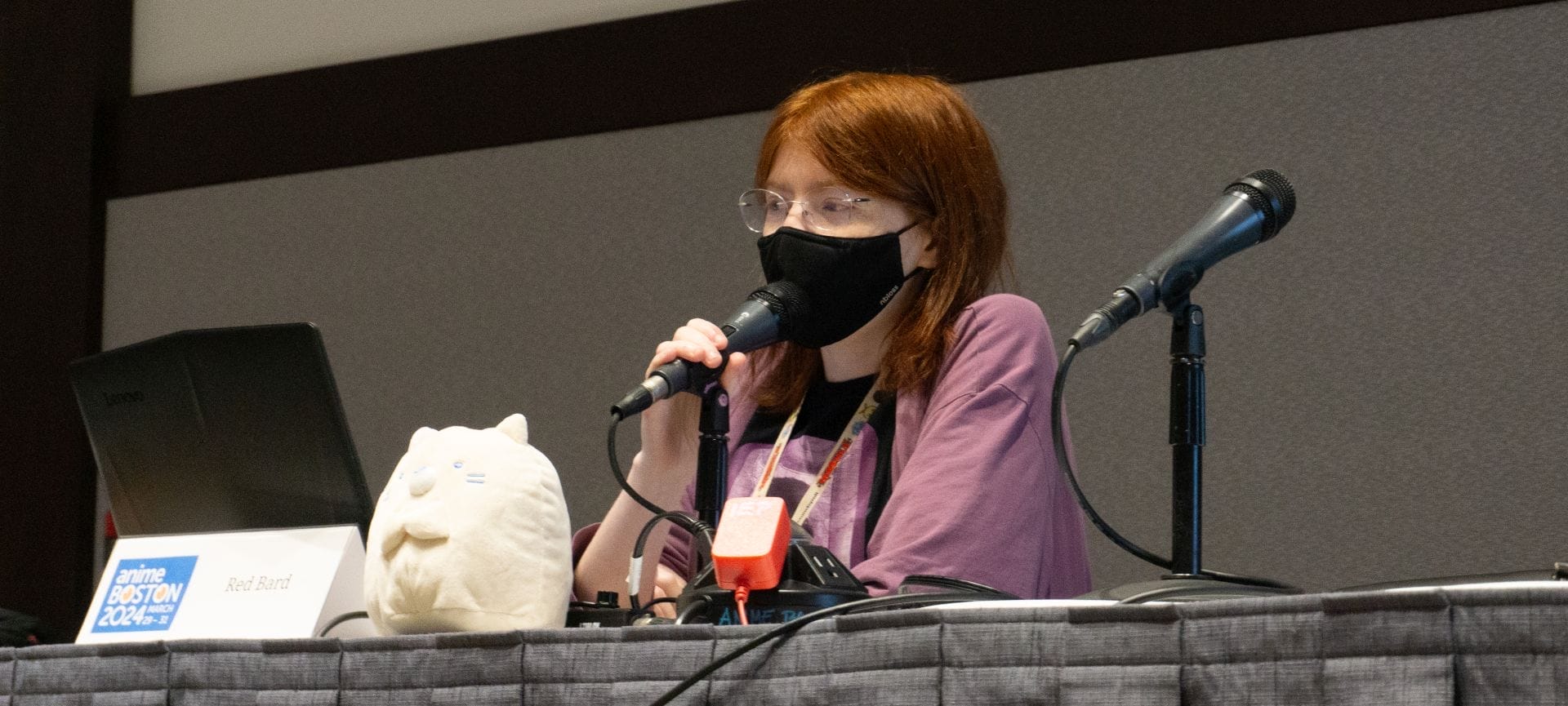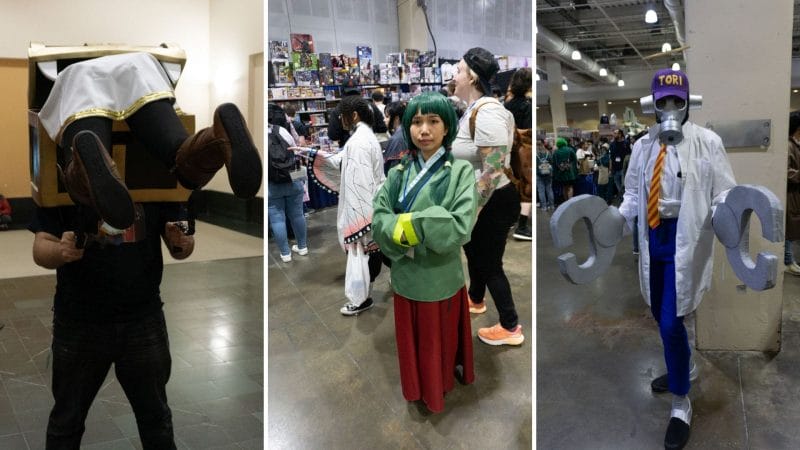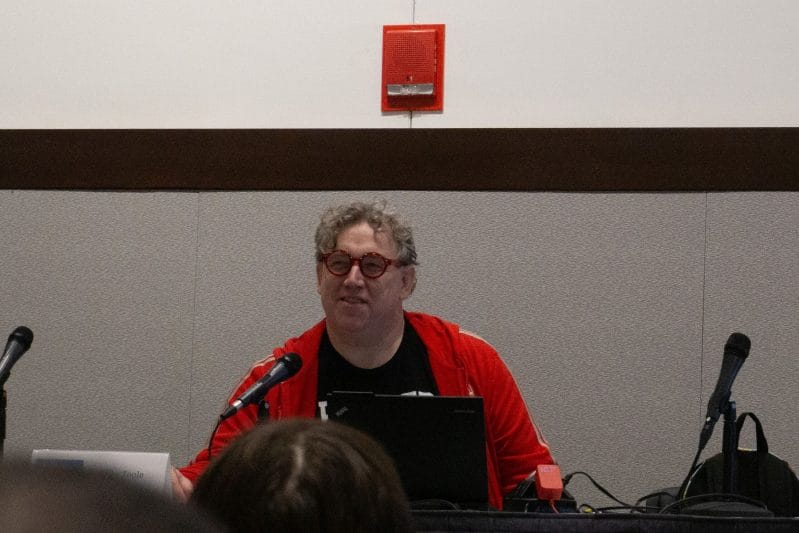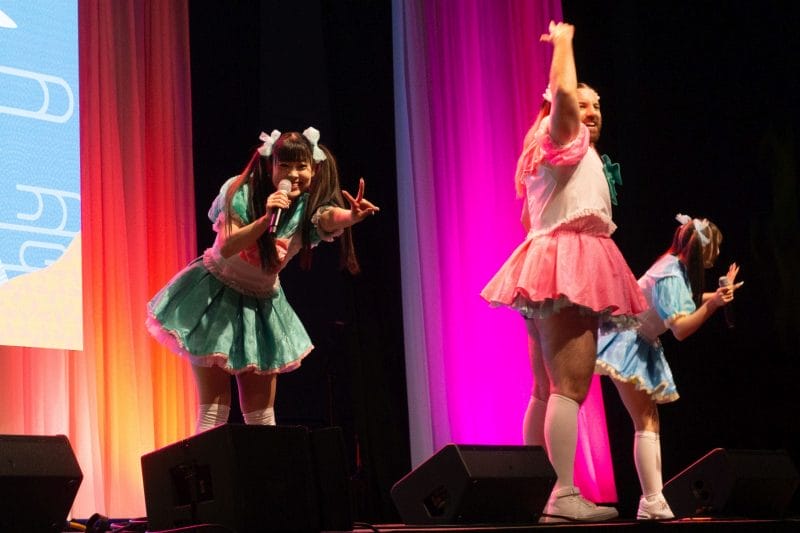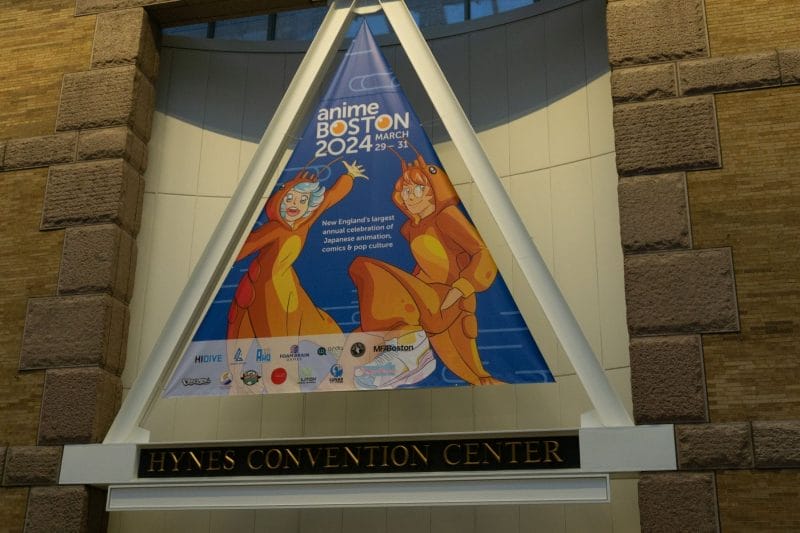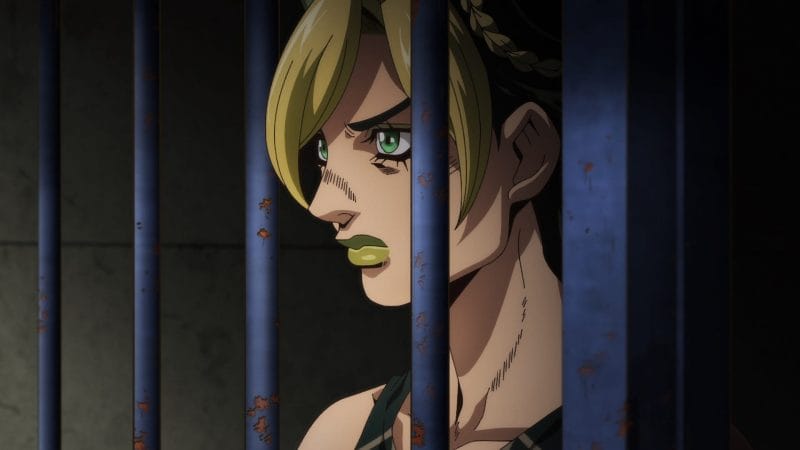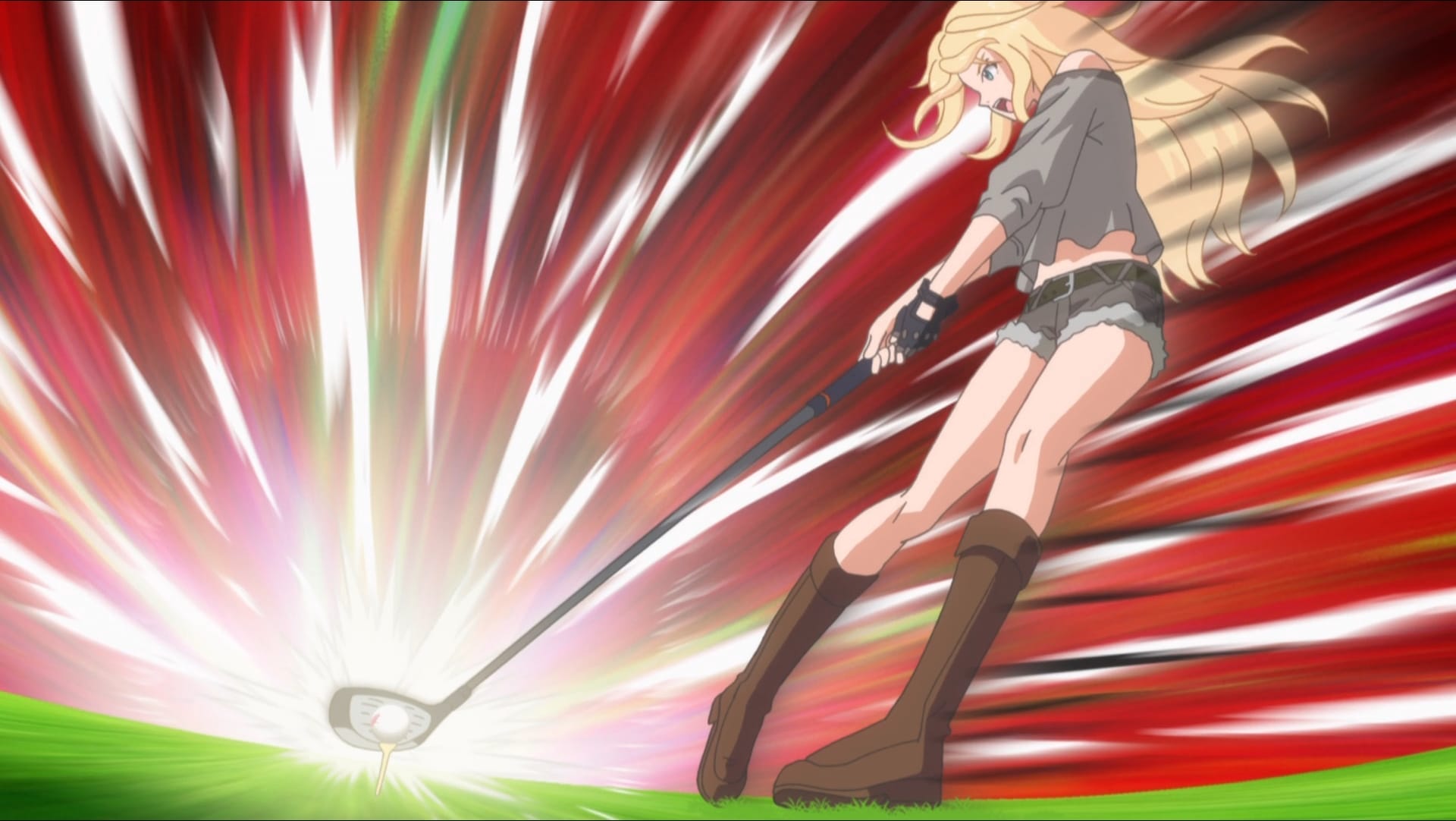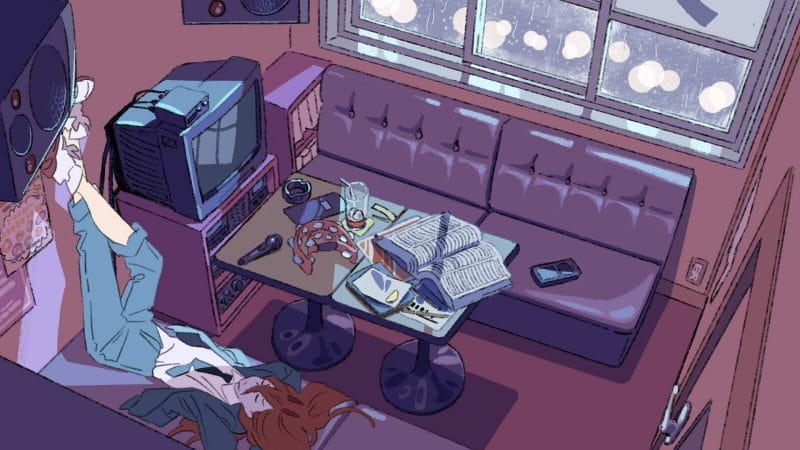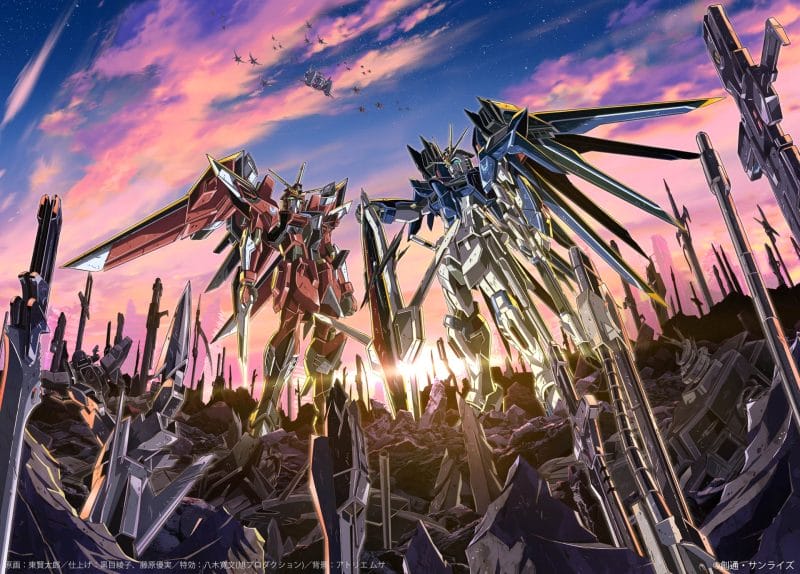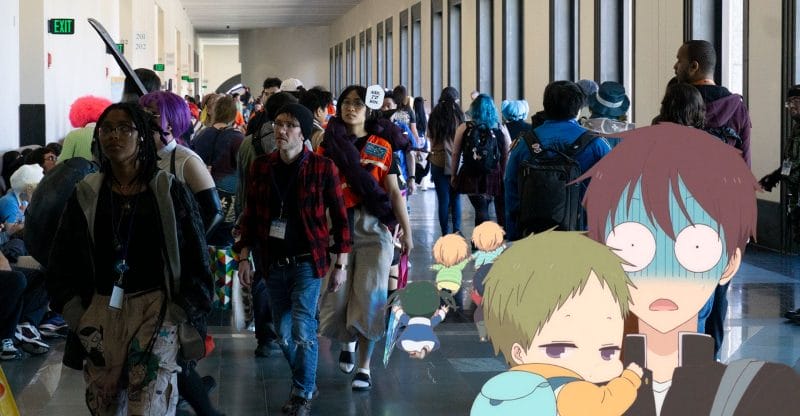Table of contents
A History Lesson
In this day and age, it’s difficult to explain just how different anime fandom was during the greater anime boom. The penetration of broadband had transformed the world, expanding access to anime in ways that seemed unfathomable in the ‘90s, while opening the floodgates to hubs of information and community. Meanwhile, the industry saw itself in a proverbial gold rush, as companies began bidding ever-increasing amounts on titles, from Fullmetal Alchemist to Heat Guy J.
It was in this period, that 4Kids Entertainment acquired the rights to ongoing series One Piece which, while a phenomenon in Japan, hadn’t quite had a chance to catch on in North America. In 2004, the company, who had been best known for their work on Pokémon and Yu-Gi-Oh! to that point, announced that they acquired the rights to the title, alongside Tokyo Mew Mew, F-Zero: GP Legend, and Winx Club. Some fans despaired; others prayed for a pickup of the uncut versions by another company. Regardless, One Piece made its debut on North American TV on Fox Kids’ Saturday morning “Fox Box” lineup on September 18, 2004, at 9:30 AM.
The series would ultimately go on in infamy, and the One Piece Rap would become a perpetual source of cringe from that day forward.
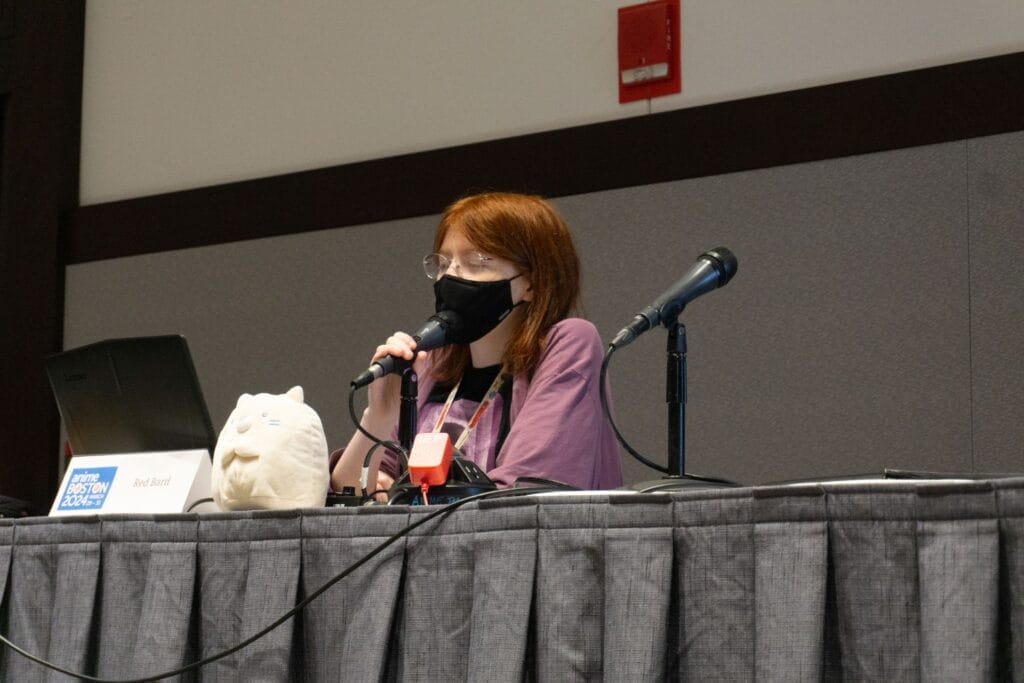
Forward to the Past
Twenty years later, at Anime Boston 2024, Kennedy, a historian and host of the Red Bard YouTube channel, would revive the collective horrors of the era in their panel, “One Piece Fandom in the 4Kids Era.” To say that the event was anticipated would be an understatement; a line had wrapped along the main corridor of the Hynes’ second floor when the staff started letting people into Panel Room 207, and it had reached capacity by the time the host had arrived.
Kennedy was happy to oblige the crowd, proclaiming, “There’s only one way to start this panel off,” before queueing up a video of the One Piece rap. The audience eagerly sang along, putting particular emphasis on the line, “Yo ho ho take a bite of GumGum” when it came up. The crowd erupted in applause as it ended, and Kennedy introduced themself.
They entered the panel proper with a short story. “Once upon a time,” they began, “Funimation did not have the English-language rights [to One Piece]. The English-language rights belonged to 4Kids.”
The crowd groaned in unison, as Kennedy continued. “4Kids…” they paused for a moment before continuing, “didn’t do a great job, and that’s the most diplomatic way I can say that.” They described it as a “really weird time for the One Piece fandom,” overall.
At this point, the host rose with a wireless microphone and started pacing back and forth, as they discussed the active fansub scene surrounding the series, with a particular focus on Kaizoku-Fansubs. “If you watched One Piece subbed in the 2000s,” they noted, “there’s a pretty good chance Kaizoku-Fansubs did it.”
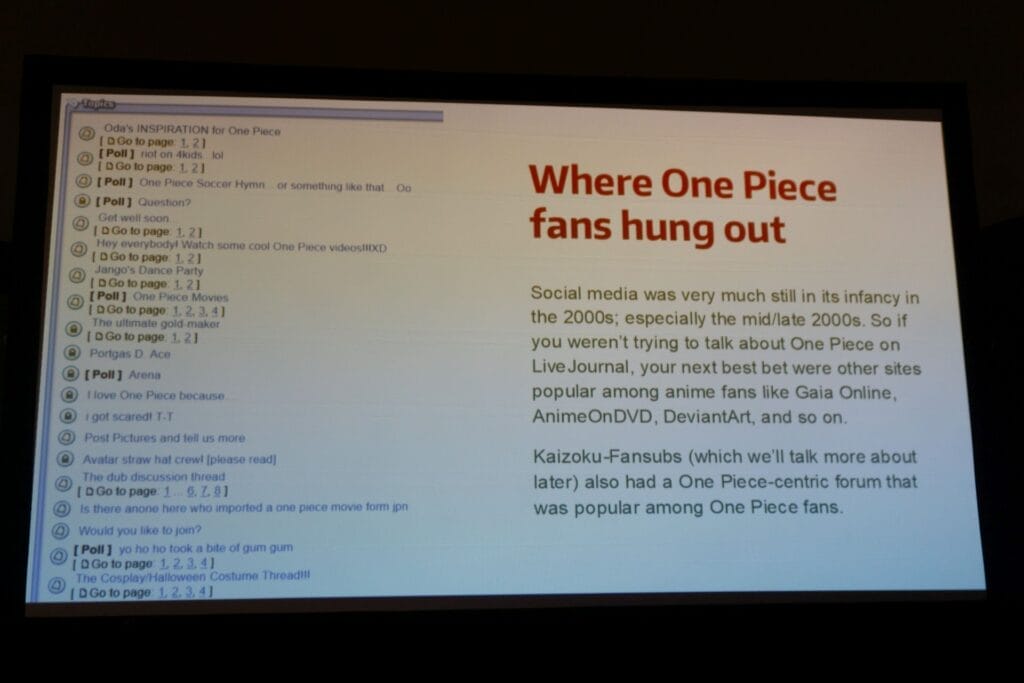
Giving a 4Kids Dub to a Show That Shouldn’t Have a 4Kids Dub
Before discussing the actual adaptation, Kennedy explained how 4Kids, specifically, came to acquire One Piece. They attributed it to the gold rush of the 2000s, pointing out that “there was this mindset that we got the next Pokémon, we got the next Yu-Gi-Oh, we got the next Sailor Moon, and so on.”
They paraphrased a 2010 episode of Anime News Network’s ANNCast, in which then 4Kids Senior Vice President of Digital Media Mark Kirk explained that, though he wasn’t a part of the company at the time, the series was likely part of a package deal. “At the time, when the licensing deals were being done for One Piece and Shaman King, I think they were kind of together,” Kirk explained in the episode, “ they were part of Shonen Jump, and you know, the same licensor. And, you know, they were probably in a sort of package deal.”
Or, as Kennedy noted, “4Kids bought One Piece first, and watched it later, at their own peril.” They pulled up the next slide, which featured a grimacing image of Master Splinter. As if on cue, a majority of the audience let out a loud, pained groan. The host paused briefly, amused by this, before exclaiming “The clip didn’t even play! I just showed the thumbnail, there’s nothing in the thumbnail indicating what’s going to happen and 90% of the room groaned!”
That clip, of course, was the infamous “The stars of 4Kids sing the National Anthem,” in which every character from 4Kids’ library, from Luffy to the Ninja Turtles, sings America’s National Anthem. The audience cackled wryly as the video played out, while those who were fortunate to have never been exposed to the spectacle tried to make sense of what fresh hell was unfolding before them.
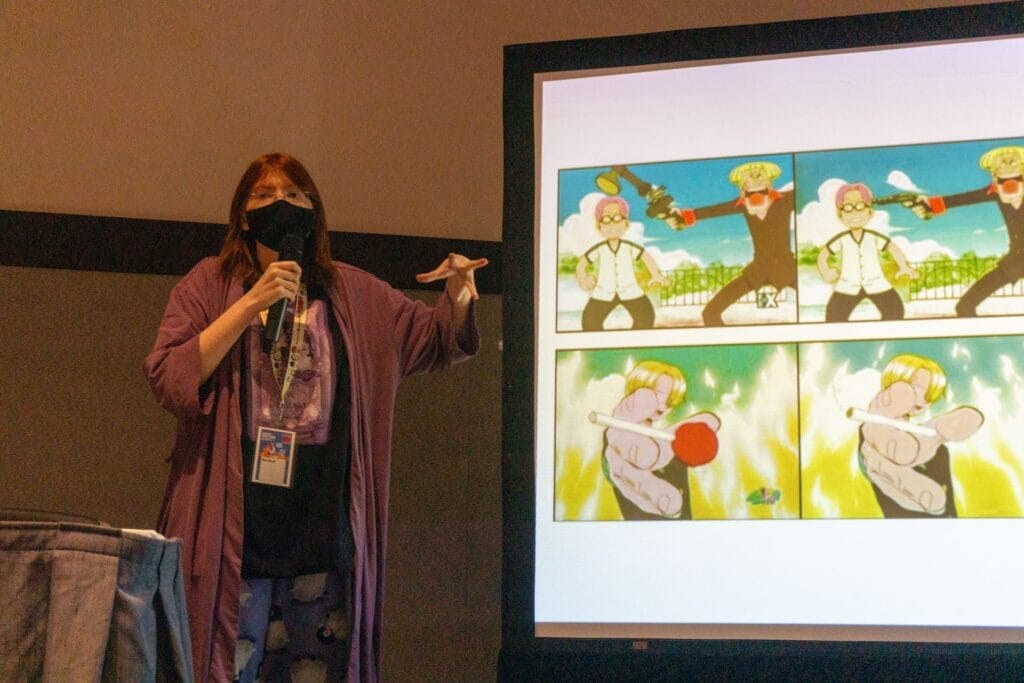
This served as a reset for Kennedy, who segued into the censorship that was employed in adapting One Piece for American television. The incredulity in their voice continued to build as they detailed the sheer absurdity of the various edits, from changing guns into oddball, Dr. Seussian contraptions, to completely removing episodes that were adjacent to the slightest hint of controversy. Notably, they noted that the Laboon and Little Garden arcs were excised completely.
They paused their explanations once more, as they stated, “4Kids One Piece is a show full of baffling creative decisions, and in a show full of baffling creative decisions, this is my favorite.”
They flipped to another clip, which portrayed an edit from the Arlong Park arc. In it, a dramatic scene in which Nami betrays the crew is rewritten entirely, to make the point where she stabs Usopp into a painfully transparent ruse, as she loudly emphasizes she’s using a “rubber knife”.
“Nothing is more ‘why did you do that, though” Kennedy noted, “than their decision to cut Laboon.” They cried out, “Let me show you what 4Kids did to my boy,” before rolling another clip, in which Laboon was changed into a giant iceberg, which was summarily destroyed as the crew rolled on like nothing happened. The person beside me in the audience just stared, mouth agape, as they tried to process what just happened.
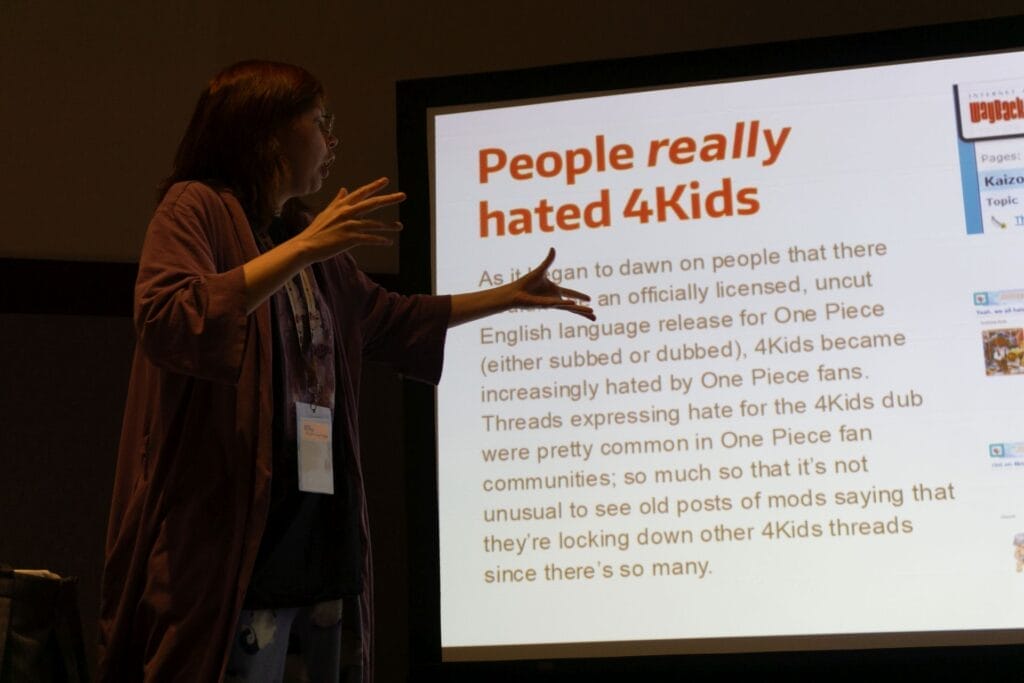
Kennedy shifted gears at this point, to note that fandom sentiment had started at a combination of denial and resignation when news of 4Kids’ acquisition broke. Before long, though, that had turned to unfettered acrimony. “People really! Really! Really hated 4Kids!” they exclaimed. And though some tried to argue that the adaptation wasn’t as bad as folks made it out to be, Kennedy noted, “Usopp got stabbed with a rubber knife! Laboon got turned into an iceberg! Yes! It is that bad! […] The money I would pay to watch Eiichiro Oda react to 4Kids’ One Piece dub, I would pay top dollar!”
The audience, at this point, cackled as they commiserated with their host. One person in the audience cried out that there was a literal hate-fiction section on sites like Fanfiction.net at the time.
Kennedy ended the panel with a brief discussion of the few bright spots from the adaptation, with the most notable being the video games, toys, and a trading card game that seemed to disappear from the public consciousness as quickly as it arrived.
Conclusion
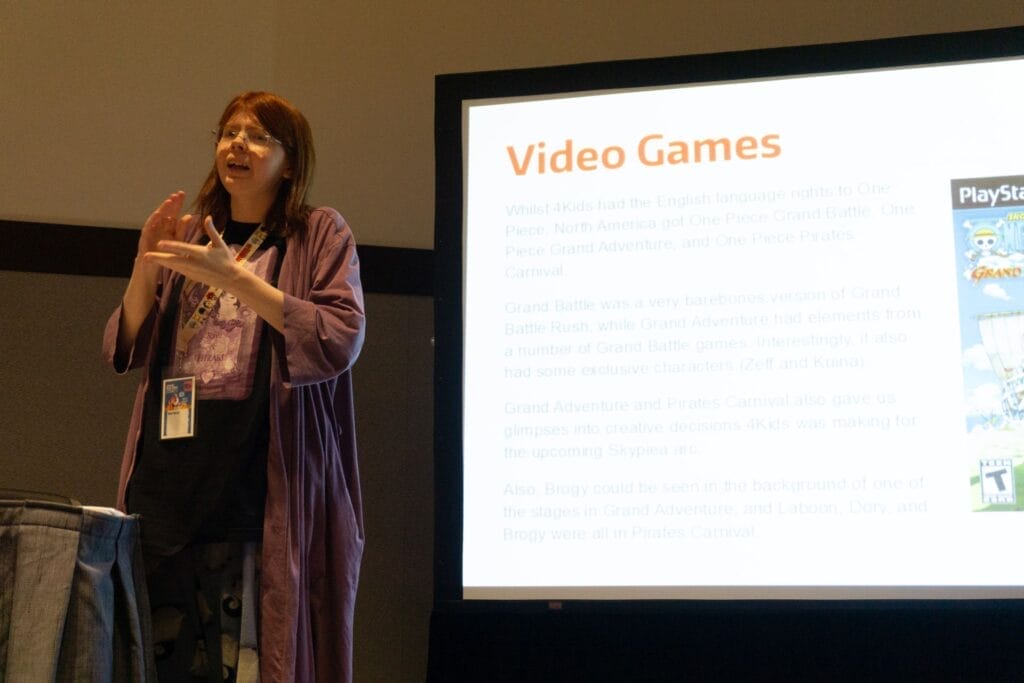
Kennedy was very much in their element throughout the panel. They delivered sharp, insightful analysis, tempered by a good-natured sense of humor that spoke volumes to their adoration of the franchise, as well as their general annoyance with 4Kids’ infamous adaptation. Their punches hit the marks they needed, and they were always happy to let a joke linger just long enough for the audience to get their own jabs in.
But, more than that, it was clear that every statement and point was made from a place of love and respect for One Piece as a franchise. The host’s breathless recollections of forum scuttlebutt from the era were refreshing, and their ability to recall specific threads and posts from fifteen years ago was nothing short of impressive.
We live in a vastly different world from that of 2005. One Piece is undoubtedly one of the biggest franchises in American fandom history, to the point that it’s become an undercurrent to general pop culture. One could be remiss to believe it’s always been that way. Thanks to folks like Kennedy, though, the history, and the cringe of that bygone era will always find a way to live on.


